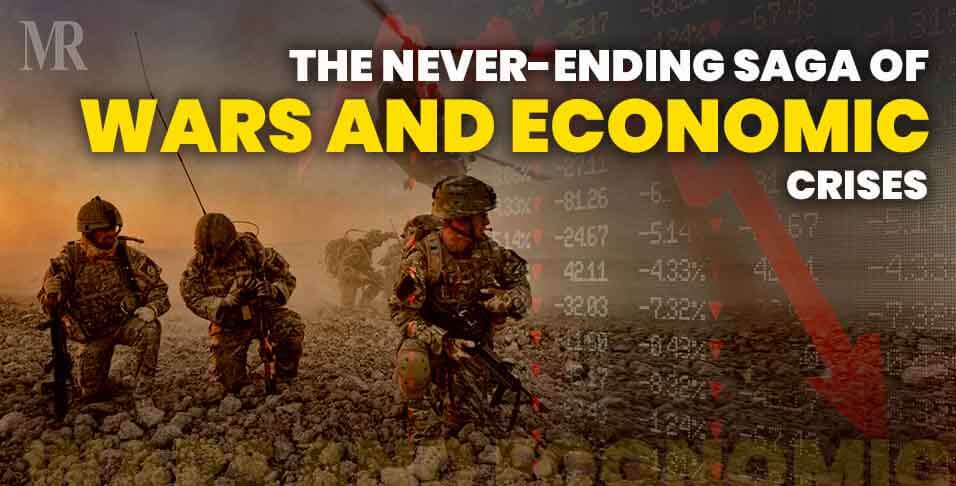History has been witness to the fact that every time there has been a war, there has been a simultaneous loss of life and economy. Wars have never brought glory to humankind—the feelings of pride are all momentary.
Even today, instances of war continue to have a massive impact on human life and the worldwide economy—the Russian-Ukrainian war being the latest example. While some predicted this as the beginning of WWIII, the military operations have already started to pave for a potential global economic crisis. Russia being the world’s 11th largest economy and Ukraine being one of its largest commodity producers will result in immediate global implications.
What are the immediate economic impacts?
Currently, the war has already started to induce plunges in market shares and prices, including the decline of the value of Bitcoin. Immediately after the war declaration, the price of Bitcoin fell below $35,000 while it was trading at $34,969 the day before—accounting for more than an 8% decrease.
In addition to that, there has been a decline in global market shares, fluctuation in oil and gas prices, and many more.
Instances when war caused economic crises
It is a common belief of modern times that war has created positive economic outcomes, particularly for the US economy. Over several years, major wars in the pages of history have led to severe economic debris, along with moral, political, and philosophical conflicts.
- WW2 (1939-45) led to a huge economic shift which still resonates around the world to date.
- The Korean War (1950-53) resulted in stalling investment and consumption.
- The Vietnam War (1955-75), unlike WW2 and the Korean War, severely damaged the U.S. economy since its aftermath unleashed a cycle of inflation.
- The Cold War (1947-1989) led to high inflation by the 1970s, resulting in a shift to supply-side economics.
What could be the potential economic impacts?
Russia is known as the largest country on earth by landmass and a commodities giant (a top producer of natural gas, oil, nickel, palladium, copper, coal, potash. Wheat, and others). Disruptions to Russian exports would accelerate commodity costs, increase global inflationary pressures and supply chain disruptions. It will also have a direct impact on incentivizing American energy production.
Russia is also a giant exporter of oil and natural gas. While the gas prices have already started to plunge at a surprising rate, the invasion could further cause inflation, disruption in the auto supply chain, prices for the grain could spike on an invasion, even without major disruptions of shipments, and many more.
Although market values and prices are the least important things in serious situations like this, they highlight that a conflict in Ukraine can be costly for the world to comprehend.
Also Read: Supply Chain 4.0 Is The Next Big Thing In The Market
















